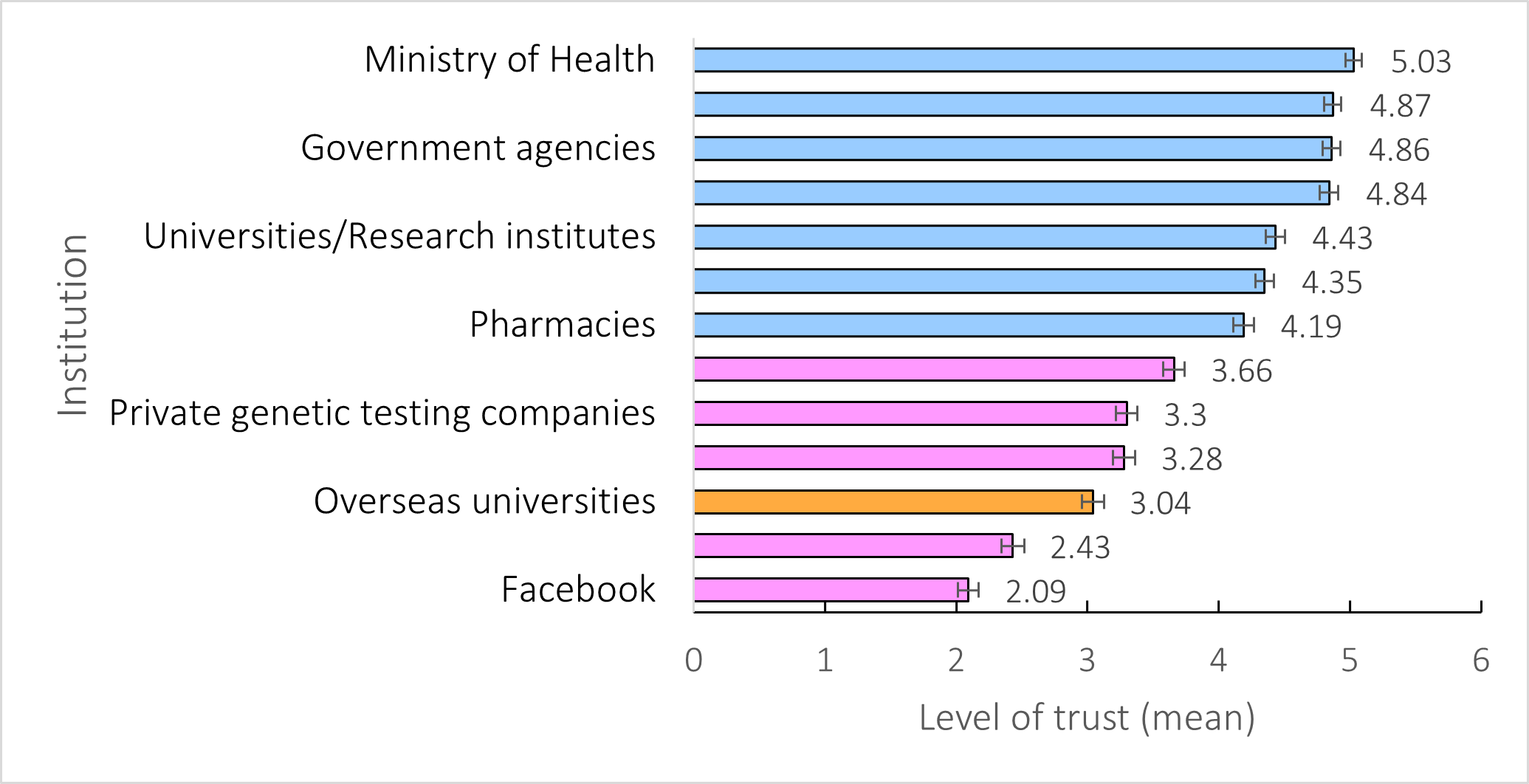About us
Learn how GA4GH helps expand responsible genomic data use to benefit human health.
Learn how GA4GH helps expand responsible genomic data use to benefit human health.
Our Strategic Road Map defines strategies, standards, and policy frameworks to support responsible global use of genomic and related health data.
Discover how a meeting of 50 leaders in genomics and medicine led to an alliance uniting more than 5,000 individuals and organisations to benefit human health.
GA4GH Inc. is a not-for-profit organisation that supports the global GA4GH community.
The GA4GH Council, consisting of the Executive Committee, Strategic Leadership Committee, and Product Steering Committee, guides our collaborative, globe-spanning alliance.
The Funders Forum brings together organisations that offer both financial support and strategic guidance.
The EDI Advisory Group responds to issues raised in the GA4GH community, finding equitable, inclusive ways to build products that benefit diverse groups.
Distributed across a number of Host Institutions, our staff team supports the mission and operations of GA4GH.
Curious who we are? Meet the people and organisations across six continents who make up GA4GH.
More than 500 organisations connected to genomics — in healthcare, research, patient advocacy, industry, and beyond — have signed onto the mission and vision of GA4GH as Organisational Members.
These core Organisational Members are genomic data initiatives that have committed resources to guide GA4GH work and pilot our products.
This subset of Organisational Members whose networks or infrastructure align with GA4GH priorities has made a long-term commitment to engaging with our community.
Local and national organisations assign experts to spend at least 30% of their time building GA4GH products.
Anyone working in genomics and related fields is invited to participate in our inclusive community by creating and using new products.
Wondering what GA4GH does? Learn how we find and overcome challenges to expanding responsible genomic data use for the benefit of human health.
Study Groups define needs. Participants survey the landscape of the genomics and health community and determine whether GA4GH can help.
Work Streams create products. Community members join together to develop technical standards, policy frameworks, and policy tools that overcome hurdles to international genomic data use.
GIF solves problems. Organisations in the forum pilot GA4GH products in real-world situations. Along the way, they troubleshoot products, suggest updates, and flag additional needs.
GIF Projects are community-led initiatives that put GA4GH products into practice in real-world scenarios.
The GIF AMA programme produces events and resources to address implementation questions and challenges.
NIF finds challenges and opportunities in genomics at a global scale. National programmes meet to share best practices, avoid incompatabilities, and help translate genomics into benefits for human health.
Communities of Interest find challenges and opportunities in areas such as rare disease, cancer, and infectious disease. Participants pinpoint real-world problems that would benefit from broad data use.
The Technical Alignment Subcommittee (TASC) supports harmonisation, interoperability, and technical alignment across GA4GH products.
Find out what’s happening with up to the minute meeting schedules for the GA4GH community.
See all our products — always free and open-source. Do you work on cloud genomics, data discovery, user access, data security or regulatory policy and ethics? Need to represent genomic, phenotypic, or clinical data? We’ve got a solution for you.
All GA4GH standards, frameworks, and tools follow the Product Development and Approval Process before being officially adopted.
Learn how other organisations have implemented GA4GH products to solve real-world problems.
Help us transform the future of genomic data use! See how GA4GH can benefit you — whether you’re using our products, writing our standards, subscribing to a newsletter, or more.
Join our community! Explore opportunities to participate in or lead GA4GH activities.
Help create new global standards and frameworks for responsible genomic data use.
Align your organisation with the GA4GH mission and vision.
Want to advance both your career and responsible genomic data sharing at the same time? See our open leadership opportunities.
Join our international team and help us advance genomic data use for the benefit of human health.
Discover current opportunities to engage with GA4GH. Share feedback on our products, apply for volunteer leadership roles, and contribute your expertise to shape the future of genomic data sharing.
Solve real problems by aligning your organisation with the world’s genomics standards. We offer software dvelopers both customisable and out-of-the-box solutions to help you get started.
Learn more about upcoming GA4GH events. See reports and recordings from our past events.
Speak directly to the global genomics and health community while supporting GA4GH strategy.
Be the first to hear about the latest GA4GH products, upcoming meetings, new initiatives, and more.
Questions? We would love to hear from you.
Read news, stories, and insights from the forefront of genomic and clinical data use.
Publishes regular briefs exploring laws and regulations, including data protection laws, that impact genomic and related health data sharing
Translates findings from studies on public attitudes towards genomic data sharing into short blog posts, with a particular focus on policy implications
Attend an upcoming GA4GH event, or view meeting reports from past events.
See new projects, updates, and calls for support from the Work Streams.
Read academic papers coauthored by GA4GH contributors.
Listen to our podcast OmicsXchange, featuring discussions from leaders in the world of genomics, health, and data sharing.
Check out our videos, then subscribe to our YouTube channel for more content.
View the latest GA4GH updates, Genomics and Health News, Implementation Notes, GDPR Briefs, and more.
2 Jul 2024
The National Precision Medicine Program in Singapore is conducting ongoing consultation of Singaporeans to gather insights on the public’s opinions about genomic data sharing to inform related data governance policies.

By Marthe Smedinga, Research Fellow at the National University of Singapore
The National Precision Medicine Program in Singapore generates and integrates genomic, health, and environmental data of up to one million individuals to support research in healthcare innovation. This blog describes ongoing consultation of Singaporeans to gather input on with whom genomic data should be shared, under what conditions, and for what purpose.
The National Precision Medicine Program has already collected more than 10,000 genomes and is currently moving towards collecting the 100,000th genome. This genome data is integrated with other health data, such as lifestyle data, to optimise the data’s research potential.
Whereas other government-funded national precision medicine programmes have primarily focused on Western populations (e.g. in Europe, the US, and Australia), the programme in Singapore is aimed at recruiting its unique multi-ethnic population that captures the genomic diversity in Asia.
Researchers can make use of the rich dataset via a national data sharing platform after approval is obtained from a local ethics review committee and the platform’s Data Access Committee.
The platform also allows for linking research and government administrative data, such as hospital administrative data, if necessary for research purposes.
All the information that can link the data to individuals, such as a name or date of birth, is removed from the platform to protect data privacy. Researchers also cannot download the data.
Ongoing consultations with the general public are part of the programme to ensure that its data sharing policies are aligned with norms and expectations in Singapore. Views of the public on data sharing are gathered via national surveys, focus groups, and a citizen jury [1].
Overall, the public responses to the programme are positive because of trust in the government’s ability to manage the data and expectations about how results might support data-driven healthcare innovation. There is conditional support for sharing health-related, including genomic, data for precision medicine depending on a few conditions, such as an opt-in regiment with options to withdraw at any time, optimised data protection, independent oversight, and accountability for data users [2].
A national survey showed that Singaporeans’ willingness to share data is more dependent on knowing who is using the data, rather than the purpose of data use, data sensitivity, or whether consent for data use is provided [3]. Figure 1 below illustrates how Singaporeans rate their level of trust in different institutions using deidentified health data for research. Respondents between 21 and 39 years of age were more likely to share data with universities, pharmaceutical and biotechnology companies, and private insurers compared to those 60 years old and above. There were no differences found between religious groups, ethnicity, or gender.

Preliminary survey and focus group results show the Singapore government is most trusted with analysing the data. Sharing data with private insurers, on the other hand, is considered more problematic because of concerns about potential rises in insurance premiums. Support for sharing deidentified data with overseas organisations, including universities, depends on the country of the organisation, its reputation, and whether people or the organisation involved can be held accountable in case of data misuse. As long as the data would be well protected with state-of-the-art techniques, and the research would provide valuable insights, there were not many concerns about sharing sensitive research data. Transparency about who is analysing data and why is appreciated, including when it is the Singaporean government itself that is using the data.
Findings of the public consultation on data sharing have been integrated in the programme’s data sharing policy in several ways. For example, an independent oversight body that is led by the Ministry of Health in Singapore has been established to review requests to access data via the data sharing platform. Also, the research projects that have made use of the data platform are described on the platform’s publicly available website.
The National Precision Medicine Program in Singapore generates and integrates genomic, health, and environmental data to support research. Researchers can make use of the gathered data via a national data sharing platform that ensures data protection. Data governance policies have integrated findings from public consultations, such as establishing independent oversight and protecting data with state-of-the-art techniques. There is support for data sharing for research in Singapore, assuming certain conditions are met including independent oversight and accountability for data users.
—
[1] Ballantyne, A., Lysaght, T., Toh, H. J., Ong, S., Lau, A., Owen Schaefer, G., … & Braunack-Mayer, A. (2022). Sharing precision medicine data with private industry: Outcomes of a citizens’ jury in Singapore. Big Data & Society, 9(1), 20539517221108988.
[2] Lysaght, T., Ballantyne, A., Xafis, V., Ong, S., Schaefer, G. O., Ling, J. M. T., … & Tai, E. S. (2020). “Who is watching the watchdog?”: ethical perspectives of sharing health-related data for precision medicine in Singapore. BMC Medical Ethics, 21(1), 1-11.
[3] Lysaght, T., Ballantyne, A., Toh, H. J., Lau, A., Ong, S., Schaefer, O., … & Tai, E. S. (2021). Trust and trade-offs in sharing data for precision medicine: a national survey of Singapore. Journal of Personalized Medicine, 11(9), 921.
